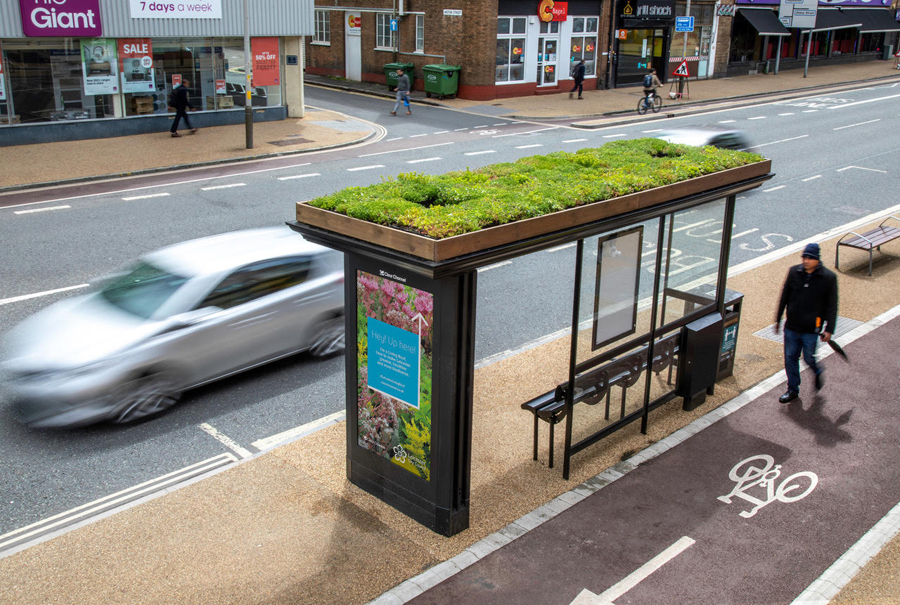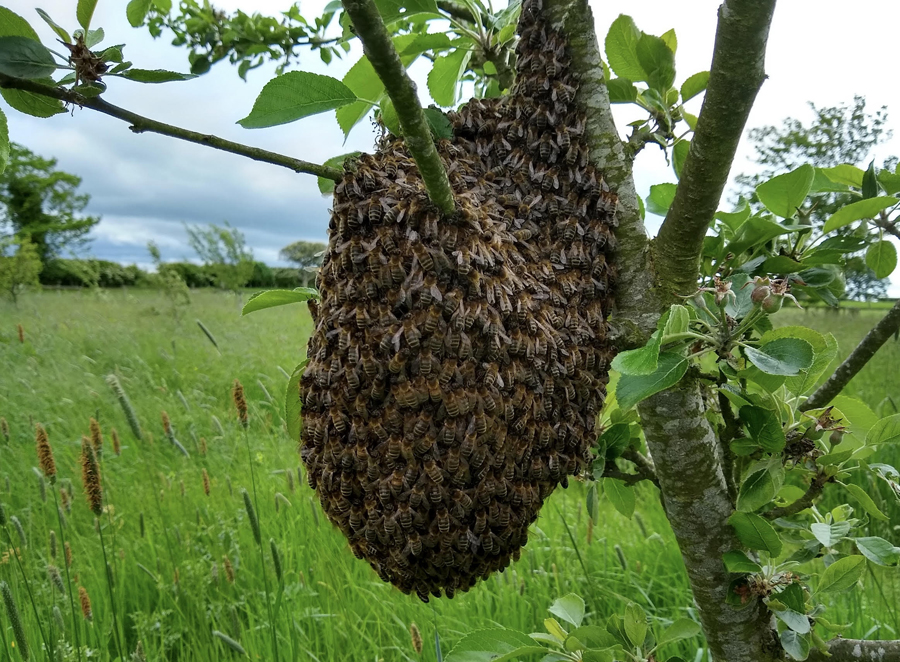
It’s that time of year when honey bee swarms start taking flight across the UK - and bee-friendly green roof manufacturer Wallbarn is urging anyone finding one to follow specialist advice to help the vital little pollinators ‘buzz off’ to a safe new home.
Swarming - where thousands of bees work together to protect their queen while finding a new home - is a natural and vital part of a honey bee colony’s lifecycle. But, according to the British Beekeepers Association (BBKA), up to 80% of swarms perish if they don’t find a new home.
To address this the association has launched the 2025 Swarm Savers initiative, with trained beekeepers across the country poised and ready to scoop up swarms for safe re-homing.
If you find a swam in your garden or a public space stay calm, keep your distance and call in the experts; the BBKA website has full information about contacting local swarm collectors. And remember, despite the noise and size, swarming honey bees are usually docile, with their main focus being protecting the queen.
“Helping the nation’s honey bees is becoming ever more important as their habitats and food sources are lost to urbanisation and the threat from yellow-legged asian hornets - which can wipe out bee colonies in a matter of hours - continues to grow,” said Wallbarn director Julian Thurbin. “We fully support the BBKA’s annual Swarm Savers campaign and really hope that anyone finding one will alert the association.”

Image courtesy the BBKA
Wallbarn has long been an avid supporter of all bee species (there are more than 250 in the UK) because of their vital role in pollinating the nation’s flowers, fruits, vegetables and other crops. It also has a link with the Rev Charles Butler (1571-1647), considered the father of English beekeeping. He lived in the Hampshire town of Wootton St Lawrence, close to the where Wallbarn grows its award-winning M-Tray modular green roof system.
Green revolution
The company is a firm champion of greening as many domestic and commercial flat roofs as possible - small, large and unusual - to create all-important ‘bee corridors’ to provide pollinators with an almost year-found food source and resting places as they travel across larger distances in urban areas.
And not only do living roofs nourish pollinators and provide a springboard for them to forage further afield, for some bee species they also provide homes; many native bees burrow in the ground and green roof substrate can provide a suitable alternative.
Wallbarn has installed green roofs in excess of 1,000m2 and as compact as those on bus stops; Leicester is one several UK cities with transport shelters topped off by M-Tray. The city has some 30 ‘bee bus stops’ which help support local bee colonies and enable them to thrive in built-up areas.
www.wallbarn.com
www.www.bbka.org.uk









